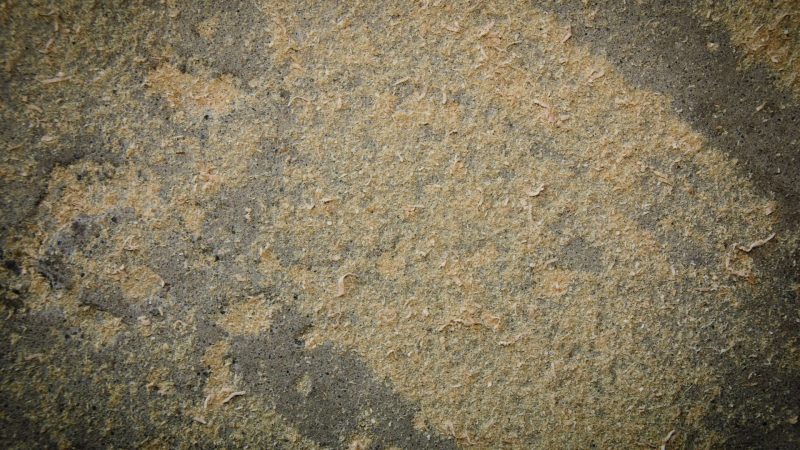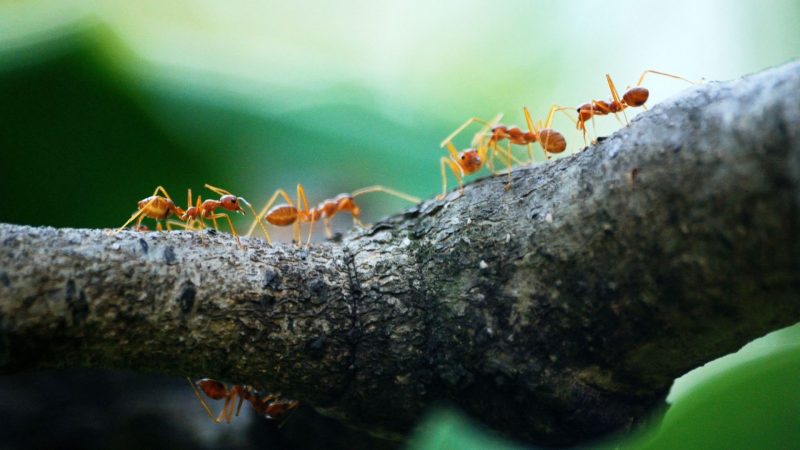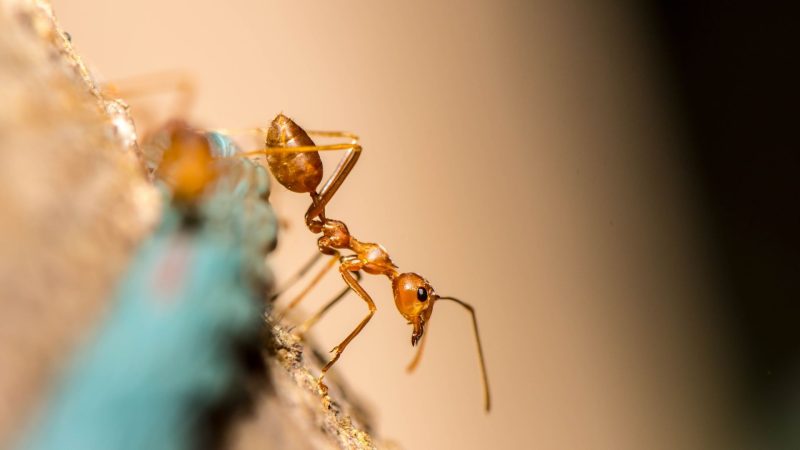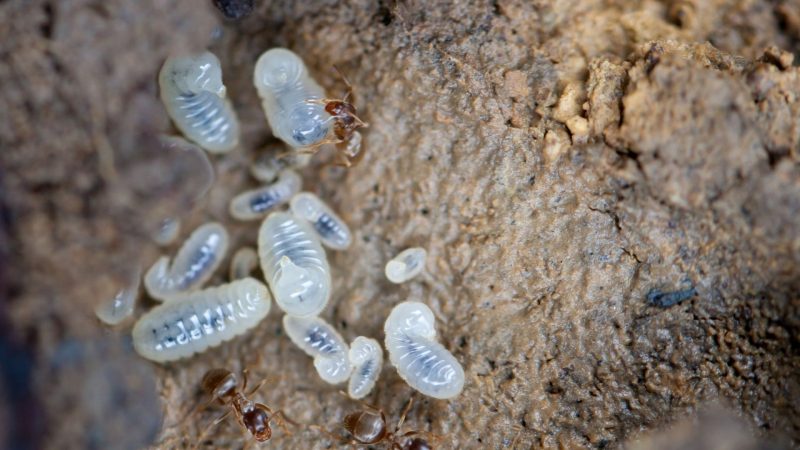Ants are social insects, and each colony has a task that is distributed among various types of ants. All other female ants are responsible for feeding the larvae, removing trash from the colony, gathering food supplies, and defending the nest. To reproduce, male ants exclusively interact with the queen.
But, do ants poop? Yes, they will create waste as an outcome of their food consumption every time they consume it. Therefore, they will have to defecate in order to release the toxic waste that has been collected inside of them.
The information included in this article will provide you with some interesting facts and information regarding ant digestive and excretory systems as well as identifying what ant poop looks like. Read further for more!
What Does Ant Poop Look Like?

People may see ant-poop as a dusty mound of brown residues that is difficult to distinguish. It’s often in such a little amount that you won’t even notice it’s there. Ant poop has a rustic, woody look about it, which is unique. Their feces is mostly composed of solids rather than liquids.
What Color Are Ants Poop?
Ants poop appears as little brown or black markings or patches. It looks like fibrous fragments of wood and excrement that have been loosely compacted when you look at ant excretions.
How Do Ants Poop?

An expansion in the abdomen of ants while eating signals that they are preparing to produce excrement. Following the ejection of all of their feces, their abdomen will swell back to its normal size.
What Is the Excretory System of Ants?
Ant excretory system consists of two main significant components:
- Malpighian tubules
- Hindgut
Malpighian tubules are often referred to as the ant’s equivalents of kidneys. They are continuously bathed in colorless ant blood and ensure that the hemolymph (a combination of blood and tissue fluids) is clean and free of dangerous substances.
As a result of osmosis, water is drawn into the tubules, where it is converted to urine. Urine travels through the gut and into the rectum, where it is excreted. In the hemolymph, sodium and potassium ions are pushed in, and then water follows. After that, the waste is excreted.
How Do Ants Excrete Waste From Their Body?

The feces generated by the Malpighian tubules are responsible for collecting and transporting all indigestible compounds from the hindgut to the rectum. This is especially important for ants that live in hot, dry areas.
Malpighian tubules with blind ends originate at the junction of the midgut and hindgut and are primarily responsible for the control of salt, water, and nitrogenous waste excretion in the abdomen of ants.
The ants’ ultimate excretory product is a semi-solid brown substance with a high concentration of uric acid, which they excrete in large quantities. After being digested in the Malpighian tubules and rectum of the stomach, feces is expelled into the world via the anus.
Here is a video about the Malpighian tubule’s function in an insect:
How Often Do Ants Poop?
Since ants are invertebrates, regular pooping is necessary to maintain their health. After ingesting food, they must eliminate waste immediately or else they will experience painful swelling.
Do Ant Larvae Poop?

Ant larvae do not excrete any waste material. They keep their excrement contained until they grow into pupae. The larvae discharge their excrement once they have been changed into pupae; their feces appear as a black circle at the pupa’s tip.
Where Do Ants Poop?
Ants are seen as unclean by the majority of people. It seems that way when they’ve invaded our houses and begun searching through our food, stealing parts of it with them. However, scientists have seen behaviors that indicate that ants are more hygienic than you would expect.
Many insects avoid pooping in areas where they mingle, feed, and live because it disturbs their environment. Generally speaking, this practice is regarded to help with hygiene. As with humans, ants excrete in a designated area.
Normally, an ant’s nest will include a toilet, which will be tucked away in a corner or up against the nest’s outside wall. For the purpose of keeping the nest clean, all of the ants in the colony defecate in the same location.
Is Ant Poop Dangerous?
While ant feces has the potential to make you sick, it is quite unlikely that you will come into contact with any since they defecate exclusively in their nest. Ants can survive in unclean, contaminated settings. They’re hunting for food, which they could find in the trash or anywhere else unhygienic.
As a result, they can spread illnesses within their bodies. They can spread pathogens such as Salmonella, Staphylococcus, Clostridium, and Streptococcus throughout whatever surface they contact.
Pathogens are organisms that infect and cause sickness in other living things, including people, in a variety of ways. They have the potential to cause tissue or cell harm by releasing poisons as they reproduce.
Related: How to Get Rid of Ants | Safe and Effective Methods
Do Ants Fart?
There has been no research on whether or not ants can fart. However, other insects like termites can fart. Like humans, other insects must release toxins from their bodies. Termite farts would be odorless since they will be mostly composed of hydrogen and methane.
List of Sources
Green, J. (n.d.). Ants Around the Home and Landscape.
Máximo, H., et al. (2014). Ants as Vectors of Pathogenic Microorganisms in a Hospital in São Paulo County, Brazil.
North Dakota State University. (n.d.). Insect Morphology – Excretory System.
- How to Get Rid of Copperheads | Practical Guide - August 27, 2023
- How to Get Rid of Corn Snakes | What Makes Them Aggressive? - August 27, 2023
- How to Get Rid of Alligators | Safety Measures and Removal Methods - July 16, 2023

